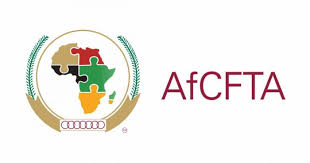In a move to restructure Nigeria’s trade infrastructure and unlock export potential, the Federal Ministry of Industry, Trade and Investment and Nigeria (MITI) and the Nigeria Commodity Exchange (NCX) are collaborating with the Africa Trade and Distribution Company (ATDC) to set up Nigeria’s first national export trading company (NETC).
Discussions are said to be at an advanced stage for the proposed NETC, which is configured to be an operating entity of ATDC, earlier set up by Afreximbank through the Fund for Export Development in Africa (FEDA), Arise Integrated Industrial Platform (ARISE IIP) and Equitane, in partnership with the African Continental Free Trade Agreement (AfCFTA) Secretariat.
The ATDC was established as a continental trading company mandated to streamline regional trade and transform Africa’s productive capacity.
The continental trading firm will provide market intelligence, logistics, finance and aggregation services to support micro, small, and medium-sized enterprises (MSMEs), smallholder farmers, informal cross-border traders and even larger corporates to participate in international trade under the AfCFTA and globally.
Announced in the presence of President Bola Ahmed Tinubu at the inaugural West African Economic Summit Deal Room in Abuja, weekend, the NETC initiative represents a bold shift in enabling Nigerian MSMEs to participate more competitively in regional and global trade through access to modern infrastructure, working capital solutions, and structured market linkages.
The NETC will be developed and operated through ATDC Nigeria, a new joint platform that merges NCX’s institutional role in commodity markets with ATDC’s trade execution and logistics capacity.
The company will directly address long-standing gaps across Nigeria’s export ecosystem – particularly in warehousing, quality control, transport, market access, and financing for smallholder producers and agro-industrial SMEs.
It will play a critical role in reducing post-harvest losses through modern aggregation and storage; structuring commodity exports with traceability and quality control.
It will also provide market intelligence and market access to certified regional and global buyers; facilitate innovative trade finance for SMEs; and revitalise NCX as a hub for structured commodity trade.
The NETC initiative is a flagship achievement under the leadership of the Minister of Industry, Trade and Investment, Dr. Jumoke Oduwole, reflecting her commitment to bold, market-aligned reforms that bridge Nigeria’s production potential with real, inclusive trade outcomes.
Under her direction, the ministry has driven strategic reforms for investment facilitation, AfCFTA readiness, and trade logistics – all converging in the transformational platform.
Commenting on the emerging NETC, Oduwole stated: “This is about changing the everyday reality for Nigerian producers – from losses to livelihoods, from being left behind to being export-ready.
We are creating a system that works for people, for markets, and for the future.”
ATDC reflects Afreximbank’s broader continental strategy to develop country-level platforms that enable intra-African trade, crowd in private capital, and improve the soft and hard infrastructure behind exports.
With similar platforms being deployed across the continent, Nigeria’s Trading Company will stand out for its scale, its institutional depth, and its direct alignment with national food security, industrialisation, and trade goals.
“ATDC Nigeria will not just be an ordinary company – it will be a trade enabler. We are building a trade ecosystem that will provide market intelligence to enable producers to manufacture the products that are required by the market.
“The National ATDC will strengthen institutions like NCX, and help actualize the vision of the Honourable Minister and the Nigerian Government,” said Abdoul Aziz Ba, Chief Executive Officer, ATDC.
Meanwhile, Oduwole had in a goodwill message at the maiden West Africa Economic Summit, revealed that her ministry very recently concluded the inaugural five-year review of Nigeria’s AfCFTA implementation, the first country to do so – demonstrating renewed national coordination and an unequivocal commitment to prioritising trade with sub-region and the entire continent.
She disclosed her ministry also took some policy directives and begun converting them into real economic wins.
According to her, over the last six months, Nigeria has made meaningful strides, including gazetting AfCFTA provisional schedules of tariff concessions – thus affirming the readiness to trade under a common African market.
“We secured Nigeria’s designation as Africa’s Champion on Digital Trade, along with a personal commendation conferred on Mr. President for his pivotal role in the sector, evidenced by several initiatives of Mr. President, including the National Talent Export Programme – NATEP, Nigeria’s first national platform dedicated to exporting high-value services at scale.
“NATEP is creating a structured pipeline that links Nigerian talent to global demand – with over 2,000 young Nigerians already placed in international remote jobs and earning hard currency.
“We opened a new Air Cargo trade corridor with 13 Eastern and Southern African countries, enabled with a market intelligence toolkit for their products, in collaboration with Uganda Air and the UNDP.
“In each of these milestones, we went out as Nigeria – but we showed up as an ambassador for West Africa committed to Africa’s shared prosperity,” she said.










